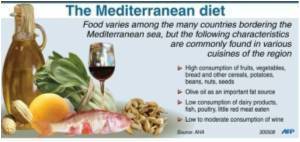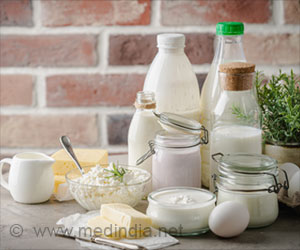Love basking in the sun, but scared of those harmful sunrays? Well, now there's a safer way to make fun in the sun safer-stick to a Mediterranean diet.

The sun's rays damage both the skin and the immune system by penetrating the skin and causing photo-oxidation affecting both the cells themselves and the body's ability to repair any damage, she explained.
Her prescription is to "go Greek" with foods such as olive oil, fish, yogurt and colorful fruits and vegetables to fight the oxidizing effect of the sun, as well as regular applications of sunscreen and appropriate body coverings such as hats, beach coverups, and other sportswear.
Previous research demonstrated that the sun's UV rays damage the skin by exciting its molecules and causing them to become oxidized, said Shapira.
"My theory was that if you prepared the body with sufficient and relevant antioxidants, damage could be reduced," she added.
For a study at the Baltic Sea, Dr. Shapira and Prof. Bodo Kuklinski of Rostock University organized two groups.
Advertisement
Those who hydrated with the antioxidant-rich drink had fifty percent fewer oxidation products (i.e. MDA) in their blood at the end of the two-week period, which included five to six hours of exposure to the sun daily.
Advertisement
"In foods, many vitamins and various antioxidants and bioactive ingredients work to support one another and the body's natural protective mechanisms. Synergies between the nutrients in your food, which make a significant contribution to health, may contrast with the relative isolation of a vitamin supplement," said Shapira.
The study has been published in Nutrition Reviews.
Source-ANI















